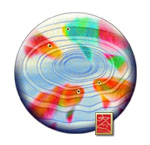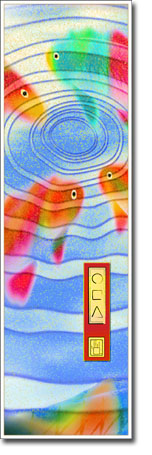On The Way: The Daily Zen Journal
Secrets of Cultivating the Mind
Chinul (1158-1210)
Even though there is a difference between whether one strays from it or realizes it, nevertheless the basic source is one. That is why it is said that the Dharma refers to the minds of living beings. This open, silent mind is not more in sages or less in ordinary people. Thus it is said that in sages it is knowledge that is nevertheless not flashy, and while it is hidden in the ordinary mind, yet it is not dimmed.
Since it is not more in sages or less in ordinary people, how could the Buddhas and Zen masters be different from other people? What makes them different from other people is simply that they are able to guard their own minds and thoughts. If you can trust completely, your feelings of doubt will stop all at once, allowing a healthy will to emerge, so that you can discover real true vision and understanding, personally tasting its flavor, so that you naturally arrive at the stage of spontaneous acknowledgment.
This is the understanding of someone who is going to cultivate the mind; there are no more stages or steps, so it is called sudden. It is like the saying that real faith is attained only when there is conformity to perfect Buddhahood in the basis of your faith.
Question: If there are no more stages after having realized this principle, why the need for subsequent practice, gradual cultivation, and gradual perfection?

Answer: I have already explained the meaning of gradual practice after enlightenment, but seeing that your doubts have not yet been resolved, I will explain it again. You should purify your mind so as to listen truly and hear accurately.
Ordinary people have been revolving in circles since time immemorial, being born and dying in five courses of existence. Because of clinging fixedly to self-images, false ideas, and misperceptions, the habits of illusion eventually become second nature to them. Even if they suddenly awaken in this life and realize that their essential nature is fundamentally empty and silent, no different from the Buddhas, nevertheless past habits are difficult to remove at once.
Therefore, they rage and rejoice as they encounter irritating and pleasing situations; judgments of right and wrong arise and pass away in profusion, and afflictions caused by outside influences are no different from before. If they do not make use of the power within transcendent insight, how can they quell ignorance and reach the state of great rest and tranquility? As it is said, “When suddenly awakened, although you are the same as Buddha, the energy of many lifetimes of habits is deep seated. Though the wind stops, the waves still billow, though noumenon is manifest, thoughts still invade.”
Master Gao said, “Time and again those who have sharp faculties awaken without much effort, then they become complacent and neglect further cultivation. Eventually they drift back into their former confusion, unable to escape revolving in circular routines.” So how can we neglect subsequent cultivation because of a single awakening?
Therefore, after awakening it is necessary to always observe and examine yourself. When errant thoughts suddenly arise, do not go along with them at all, reduce them, reduce them, until you reach the point of non-contrivance, which alone is the ultimate end. This is the ox-herding practice carried out by all illuminates after their enlightenment. Even though there is subsequent cultivation, they have already realized sudden enlightenment.
Errant thoughts are fundamentally empty; the essence of mind is fundamentally pure. To stop evil over and over without any stopping, and cultivate goodness over and over without any cultivating, is true stopping and cultivation. Therefore it is said that even as you fully cultivate myriad practices, only no thought is to be considered a basis.
Master Chinul (1158-1210)
Excerpted from Minding Mind – A Course in Basic Meditation trans by Thomas Cleary 1995




This discussion between sudden enlightenment and gradual cultivation has gone on for centuries. So we are not alone in our own confusion about these principles. This is a very clear description of the need for both. There are many areas of attachment that can come up in practice, sometimes places so comfortable we linger there thinking “this is it!” when it is really just an understanding or insight to be moving beyond.
There are many varieties of Zen sickness that can come up; probably the most enticing are those first few insights that seem like enlightenment. There is no stopping place; no place to bask in our “accomplishments.” The other extreme of Zen sickness is attachment to emptiness, withdrawing ourselves from the world of action. Probably the most familiar state for many is the feeling of being far from it. We read these accounts of enlightenment experiences and realize we’ve never gone through anything like that! So just where are we in all this? And that is yet another form of sickness, bringing out the measuring stick to see how much further we have to go. All illusions and places to get stuck.
So, how to continue? I leave this question for each of us to answer. As long as we are nourishing the mind that seeks the Way and not giving into spiritual exhaustion, disillusionment with spiritual politics, or disenchantment with the show of spirituality, we’ll know our spirit is still intact. We each have to come to terms with our own spiritual code of conduct; rules are great for people who won’t tune into their own inherent tuning fork. The Dharma is written in each one of us from the very beginning; when we’re not busy clouding things over, the message is loud and clear.
Something hidden, go and find it,
Elana, Scribe for Daily Zen